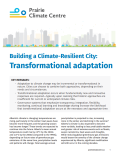
Alberta’s climate is changing: temperatures are rising, particularly in the winter; heat waves have become more frequent; and the growing season has become longer. These trends are expected to continue into the future. Alberta’s mean annual temperature could rise by 2.0°C by the 2030s and 4.0°C by the 2060s (compared...

In recent decades, Alberta has experienced significant changes in its climate as well as its economy, population and environment. The province’s mean annual temperatures are increasing and projected to continue to rise in the coming decades—potentially by 2.0°C by the 2030s and 4.0°C by the 2060s (compared to the 1990s)—should...

In recent decades, Alberta has experienced significant changes in its climate as well as its economy, population and environment. Mean annual temperatures are increasing and projected to continue to rise in the coming decades—potentially by 2.0°C by the 2030s and 4.0°C by the 2060s (compared to the 1990s) — should...
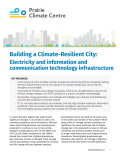
In recent decades, Alberta has experienced significant changes in its climate as well as its economy, population and environment. Alberta’s mean annual temperatures are increasing and projected to continue to rise in the coming decades—potentially by 2.0°C by the 2030s and 4.0°C by the 2060s (compared to the 1990s) —...
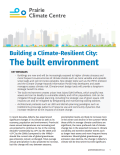
In recent decades, Alberta has experienced significant changes in its climate as well as its economy, population and environment. Provincial mean annual temperatures are increasing and are projected to continue to rise in the coming decades—potentially by 2.0°C by the 2030s and 4.0°C by the 2060s (compared to the 1990s)...
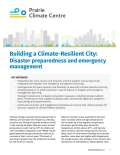
Climate change is already being experienced in Alberta, and will alter the frequency, intensity, duration and timing of extreme weather events in the coming decades. Alberta’s mean annual temperature could rise by 2.0°C by 2030s and 4.0°C by 2060s (compared to the 1990s) should global greenhouse gas emissions continue to...
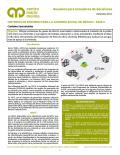
Through in depth case studies in Mexican cities, the Mario Molina Center proposed the location of social housing as an indicator of urban sprawl. Together with the government and construction companies, the Mario Molina Center has developed a tool to change incentives in the market so that development of future social housing...
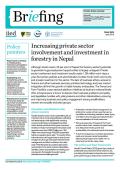
Although forest covers 40 per cent of Nepal, the forestry sector’s potential to generate huge employment opportunities is largely untapped. Private sector involvement and investment could create 1.38 million work days a year. But certain policies and administrative hurdles hinder both community and private investment in the sector. The lack...
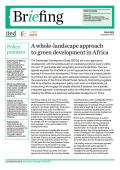
The Sustainable Development Goals (SDGs) set a new agenda for development, with the ambitious aim of eradicating extreme poverty within the next 15 years while also recognising environmental limits.
This new post-2015 agenda exposes the shortfalls of current approaches and demands a new approach to economic development. African countries are...

When five per cent of milk fails to meet standards, you have a problem with milk. When 50 percent does not meet standards, you have a problem with standards. In developing countries, perishable food is mostly sold in informal markets and often does not meet national food safety standards. Government...
